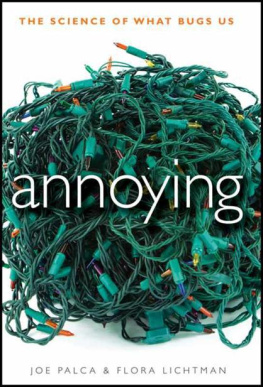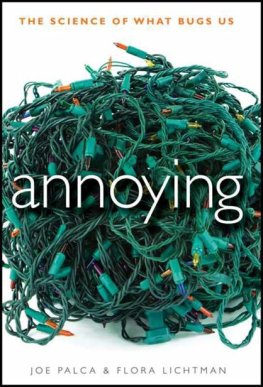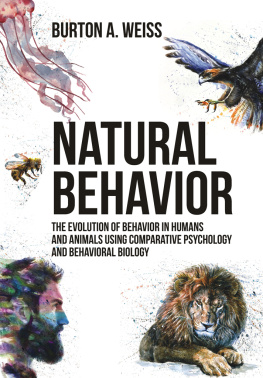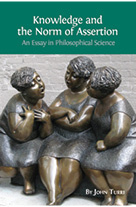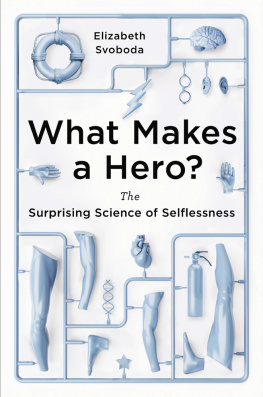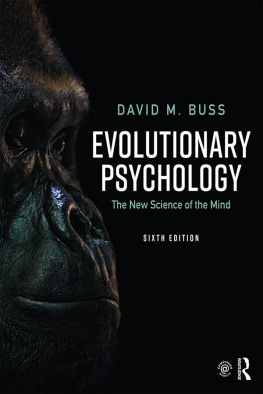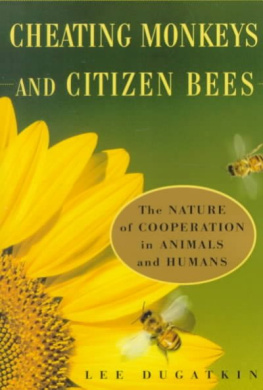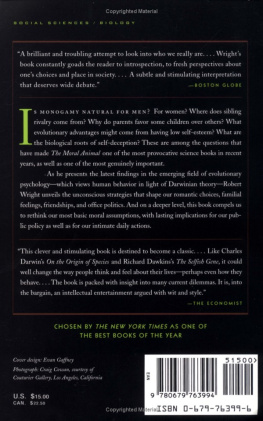Joe Palca - Annoying: The Science of What Bugs Us
Here you can read online Joe Palca - Annoying: The Science of What Bugs Us full text of the book (entire story) in english for free. Download pdf and epub, get meaning, cover and reviews about this ebook. year: 2011, publisher: Wiley, genre: Romance novel. Description of the work, (preface) as well as reviews are available. Best literature library LitArk.com created for fans of good reading and offers a wide selection of genres:
Romance novel
Science fiction
Adventure
Detective
Science
History
Home and family
Prose
Art
Politics
Computer
Non-fiction
Religion
Business
Children
Humor
Choose a favorite category and find really read worthwhile books. Enjoy immersion in the world of imagination, feel the emotions of the characters or learn something new for yourself, make an fascinating discovery.
- Book:Annoying: The Science of What Bugs Us
- Author:
- Publisher:Wiley
- Genre:
- Year:2011
- Rating:4 / 5
- Favourites:Add to favourites
- Your mark:
Annoying: The Science of What Bugs Us: summary, description and annotation
We offer to read an annotation, description, summary or preface (depends on what the author of the book "Annoying: The Science of What Bugs Us" wrote himself). If you haven't found the necessary information about the book — write in the comments, we will try to find it.
It happens everywhere?offices, schools, even your own backyard. Plus, seemingly anything can trigger it?cell phones, sirens, bad music, constant distractions, your boss, or even your spouse. We all know certain things get under our skin. Can science explain why? Palca and Lichtman take you on a scientific quest through psychology, evolutionary biology, anthropology, and other disciplines to uncover the truth about being annoyed. What is the recipe for annoyance? For starters, it should be temporary, unpleasant, and unpredictable, like a boring meeting or mosquito bites
- Gives fascinating, surprising explanations for why people react the way they do to everything from chili peppers to fingernails on a blackboard
- Explains why irrational behavior (like tearing your hair out in traffic) is connected to worthwhile behavior (like staying on task)
- Includes tips for identifying your own irritating habits!
How often can you say youre happily reading a really Annoying book? The insights are fascinating, the exploration is fun, and the knowledge you gain, if you act like you know everything, can be really annoying.
From the Authors: What Annoys You?
Consider the following story, posted on the Ghana News website on February 11, 2011:
| Annoying alarm was missing parrot A woman who complained a fire alarm had been sounding non-stop for seven days has discovered the noise was made by a missing parrot. Shanna Sexton, 25, said she was pushed to the edge by the high-pitched tone and even called in workmen to try and locate the problem. But the mystery was solved when she finally spotted the African Grey Congo parrot perched on a water butt as she hung out washing in the garden. The noisy parrot, called Sammi, had escaped from neighbor Louise Ledgers house a week earlier and spent seven days in the garden mimicking a smoke alarm. Miss Sexton, from Torquay, Devon, said: Id been hearing the noise for ages. I looked around the house checking everything. I even pulled out the washing machine. In the end a workman said it sounded like it may be my smoke alarm. We had problems with our smoke alarm before and I thought here we go again. It was driving me mad but I just could not find out where it was coming from. |
Unpredictable: Ms. Sexton couldnt tell when the noise would occur. Every so often Sammi would let loose with the high-pitched squeal of a smoke alarm, but if his schedule for shrieking wasnt truly random, at least it was known only to him.
Unpleasant: A smoke alarm is designed to be unpleasant. If smoke detectors made a sound like tinkling chimes or chirping birds, we would simply ignore it. No, the idea is to get you up off the couch to shut off that annoying racket before you are engulfed in flames.
Uncertain duration: The reason Ms. Sexton was pushed to the edge was there was no way of knowing when the sound would stop. After each screech ended, she must sure have said to herself, thats got to be the last one, only to find to her dismay it wasnt.
With Ms. Sextons troubles in mind, we asked a few of our colleagues, at NPR and beyond, what annoys them.
Christopher Joyce, NPR Science Correspondent
My personal most annoying annoyance is worse than yours. Its worse than anybodys. You know why? Because it nails me when Im asleep. You, you can be annoyed all day long but you can go to bed at night knowing that except for a noisy neighbor or his dog, or a mosquito in the air, or a lumpy bed, youve escaped the daily mine-field of annoyance. Not me.
No, when I go to bed, I enter the annoyed mans nightmare--the recurring dream. The details change but the theme is always the same. Im trying to get somewhere important. Im trying to catch a plane, and time is running out. Trying to get to a meeting or a class on time. Trying to find a bathroom, urgently, of course. Worst of all, trying to rendezvous with a beautiful woman. Oh, yes, thats when its most annoying.
Because what happens, every time, is that something keeps me from getting there. Im driving and I get lost. My cab driver stops to get lunch and disappears. Theres an accident on the freeway. The public toilets are under repair and out of service. Once there was an earthquake and I had to get out of a car and walk (I think that was a woman-rendezvous dream).
At first, I struggle diligently to find an alternate route--after all, Im a responsible person, at least in my dreams. I hail down another cab, book another flight. But soon enough it dawns on me that whatever I do is hopeless. I am foiled, again and again. Sorry, flights canceled due to bad weather. Road work ahead. Bridge down. Detour.
Now, Ive traveled a lot in my life, all over the place, in war zones and Amazonian rainforests and Tibetan highlands and on rickshaws and in dugout canoes. I KNOW about washed out bridges and drunken bus drivers and chain-smoking customs agents wholl wait days until you come up with the bribe. My subconscious is LOADED with examples with which to impale a traveler like a butterfly pinned to a patch of felt.
Eventually, I reach a stage of weary acceptance. Im not going to make it to my destination. I realize Im in that dream again, Im asleep, and that jerk who lives somewhere in my head is doing this on purpose, writing the script as I sleep, making sure that whatever clever solution I come up, hell trump it. And theres nothing I can do because that jerk is me...the annoying me, annoying me. Gotta go now...got a plane to catch.
Sandra Blakeslee, coauthor, Sleight of Mind
One of the things that truly irritates me is my local NPR stations broadcast of All Things Considered. The NPR content is excellent but the local anchor has the worst news delivery style I have ever heard. Her voice drives me crazy. I have to turn down the sound whenever she starts talking. Equally irritating is the fact that this station has been running the same ads (restaurant, physicians etc who pay to tout their support) for what feels like years. Another woman with a chipmunk voice (almost as bad as the news person) says the same things over and over and over and over and over and over. I think one tunes in to the news programs for novelty. When the station never changes its between NPR segment content, it makes me want to scream. Bottom line, I guess the annoying things are the bad radio voices and the repetition. I will try to think of more examples (I probably dont have to mention the torture of going to the US Post office to get anything accomplished.)
Cornelia Dean, Science Reporter, the New York Times
What makes me crazy is people saying less when they mean fewer, loan when they mean lend, etc. Then I am annoyed at myself for objecting to what are, in effect, real life examples of some of the features that have made English the irresistible language of the world -- its mutability and immunity to the dictates of any academy.
Sarah Brookhart, Deputy Director, Association for Psychological Science
For me, public transportation is teeming with annoyances. Like bacteria on the handrails, the loud one-sided phone conversations about what to have for dinner are part of the deal when youre in a subway car at rush hour. Put on headphones and tune it out. But I could probably ignore a colony of deadly microbes more easily than I can ignore the guy sitting next to me clipping his fingernails. Cranking up the iPod doesnt help. Time stands still. Agonizing suspense after each clip. Has he stopped? Or will there be another click of the teeny guillotine? Then, that unmistakable sound, and a half-moon sliver sails through the air in slow-motion. Worse, I can see it land on the arm of the woman across the aisle; she has no clue, but my skin is crawling with disgust. Sarah Brookhart
R. Alta Charo, Warren P. Knowles Professor of Law and Bioethics, the University of Wisconsin at Madison
Thank you for choosing Company, Inc. Para la informacin en espaol, diga el espaol o marque el nmero 2. There is absolutely nothing annoying about the offer to handle my business in Spanish. What does make me crazy is the certain knowledge that everything after this, whether in English, Spanish or Esperanto, will also involve pressing keys to select from among inappropriate choices, with a less than even chance that after four or five or ten such selections I will actually get to a person. Come to think of it, even getting to a person is annoying, as almost every time they then ask me to recite all the information Ive been punching in. (Using your telephone keypad, please enter your ten digit telephone number, starting with the area code.). First, dont their computer screens already show them this information? Second, why ask for it when the odds are better than 3-1 that the live person finally talking on the phone doesnt have answers more individualized than the automated phone system or on-line FAQs? I know! Why not have every company simply send me the training manual for their customer (non)service representatives, and I can just select from the standardized answers and recite them to myself, without the bother of pressing all those keys? I can recite to myself I apologize for the wait. My call is important to me. Please hold and I will be with me in a moment. Whats really great about this solution is that I am indeed the representative. So not only do I know I am busy (probably doing email while on-hold) but I can choose precisely which moment I will choose to answer my own call! The maddening uncertainty of the waiting, the irritating not- knowing how many keys Ill be pressing, all this is magically erased.
Joe Palca: author's other books
Who wrote Annoying: The Science of What Bugs Us? Find out the surname, the name of the author of the book and a list of all author's works by series.

